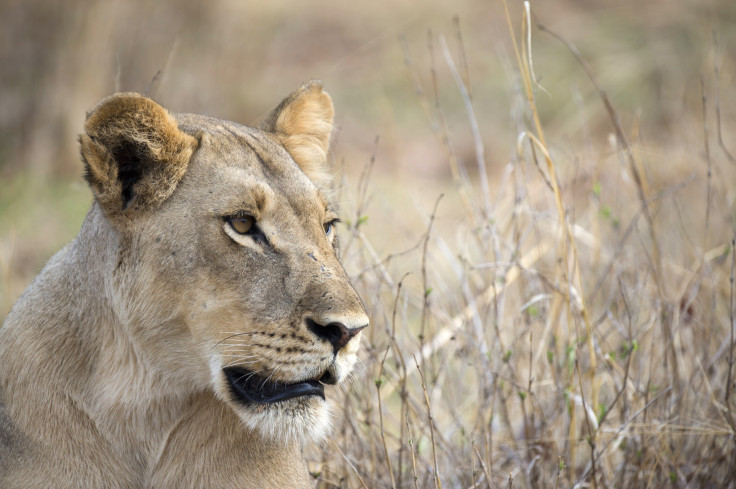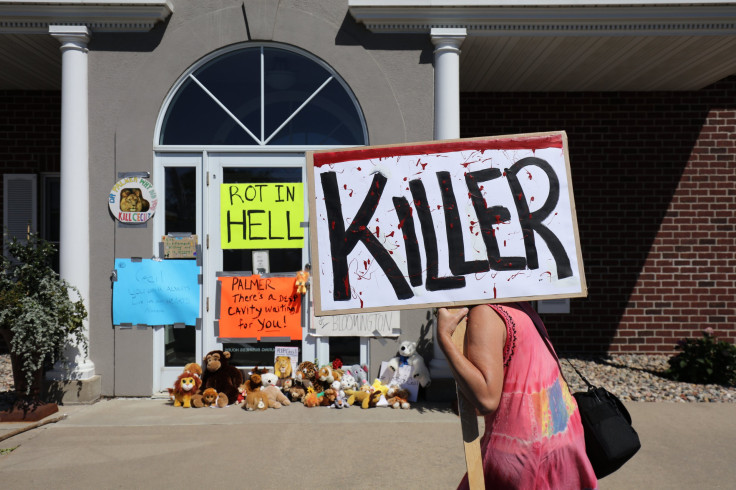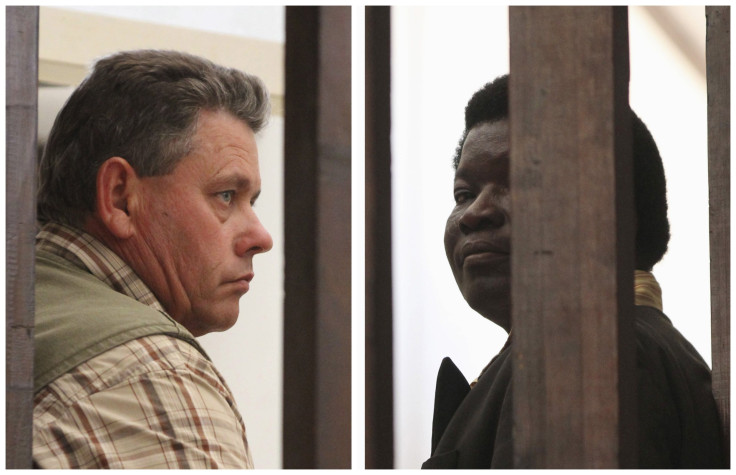Cecil The Lion Killing: Trophy Hunting Popular Among Wealthy Americans, Despite Population Decline

Each year, hundreds of wealthy Americans who crave the hunt will leave their luxury cars and suburban homes to spend a few weeks in Africa on a safari, where they stalk big cats for trophies that can be hung on their living room walls. Killing exotic wildlife for sport sounds both dangerous and ruthless, but it's perfectly legal and hugely popular among American tourists.
Minnesota dentist Walter Palmer allegedly paid $50,000 this month to hunt and kill in an area outside Zimbabwe's Hwange National Park with Bushman Safaris, a family-owned hunting business. The American tourist got what he paid for – a glorious lion trophy. But the lion, named Cecil, was a beloved resident of the neighboring national park. Palmer and his fellow hunters allegedly baited the giant cat out of the reserve and into a hunting area, which rendered the kill illegal. A wave of international outrage has been unleashed against Palmer and his hunting gang, who now face poaching charges. But Cecil's killing also highlighted the steep price some Americans will pay to kill African lions for sport, even though the species is in serious decline.
Trophy hunting in Africa is a relished past time for many rich Americans. Photos recently resurfaced of presidential candidate and real estate tycoon Donald Trump’s sons posing with the slain bodies of several African animals they hunted for sport, including an elephant and a leopard. In 2013, Republican Rep. Paul Broun of Georgia, whose taxidermy collection includes a bear, a lion and several other animal heads, bragged about killing and eating an African lion during a hunting trip in Zimbabwe.
“Cecil’s death was a tragedy, but it’s certainly not an anomaly,” said Jeffrey Flocken, North American regional director at the International Fund for Animal Welfare, an animal protection organization based in Washington, D.C.

Trophy hunters legally kill at least 600 African lions each year, and American tourists are responsible for more than half of these kills or about 400 lions, conservationists said. African hunting safaris take place in concession areas, which are often located next to national parks without any fences or separation. The hunt can last for weeks and the cost varies per species and per country. A 21-day elephant hunt in Zimbabwe costs $1,100 per day, with an extra $15,000 charge for the elephant trophy. But payments upwards of $80,000 to hunt the world's largest land mammal is not unheard of, according to National Geographic.
The cost for a lion hunt in Zimbabwe is about $35,000 to $40,000. The hunter must then pay a slew of fees for the trophy and to ship the carcass back to the United States. While lions are not necessarily the most expensive game in Africa, they are certainly the most prestigious, conservationists said.
“Lions are the most popular trophy animal,” said Pieter Kat, a trustee of LionAid, a lion conservation charity based in the United Kingdom. “Everybody wants a lion on their wall.”
Safari Club International, the hunting group that Palmer belongs to, hails the African lion in a November 2014 blog post as “one of the most challenging and dangerous hunts. The lion is rightfully placed in the African Big Five for good reason, and virtually anyone who imagines an African Safari envisions the big maned lion charging the implacable hunter shouldering his European double rifle.”
But the kill is not guaranteed, which is why some American tourists are flocking to South Africa for canned hunting, where lions are bred in captivity and kept in a confined area to increase the likelihood of a trophy. The cubs attract children and cute photo-ops, and the adult lions make for easy kills. In some cases, the customer can choose ahead of time which big cat they want to hunt and the price varies based on the lion’s size and color. A male lion with a small mane could cost about $20,000, while an inbred white lion could cost about $35,000, according to Kat, the LionAid trustee.
“It’s like choosing from a Chinese menu. They’ll say, 'I want this particular lion,'” he said in a telephone interview Thursday. “It’s a guaranteed kill.”

Cecil was not Palmer’s first kill. In a statement to the Minneapolis Star-Tribune, the seasoned hunter expressed remorse Tuesday that an activity he enjoyed led to the death of the famed 13-year-old lion, which had been tracked and studied by Oxford University's Wildlife Conservation Unit since 2008.
“I had no idea that the lion I took was a known, local favorite, was collared and part of a study until the end of the hunt,” Palmer said. “I deeply regret that my pursuit of an activity I love and practice responsibly and legally resulted in the taking of this lion.”
Some conservationists have argued that lion hunts are sustainable and help conservation efforts, with trophy fees and hunting rates that bring in thousands of dollars. A 2012 study led by zoologist Peter Lindsey concluded that limiting lion trophy hunting would better benefit the species in some countries, such as Tanzania and Zimbabwe, rather than outright banning the practice.
“Conversely, if lion hunting was banned, and wildlife-based land uses were replaced by alternatives in some areas, the long-term prospects for lion conservation in those areas would be poor and reversing negative trends would be unlikely,” the report stated. Lindsey is now with Panthera, a conservation group based in New York that had partnered with Oxford University to study Cecil as part of the Hwange Lion Project.
But it’s a concept that many conservation groups don’t buy into. The landowner and safari operators pay fees to the local government for permits and licenses, but that's pennies compared to the royalties from the trophy hunt they pocket. Moreover, the number of animals in concession areas, where it’s legal to hunt, is dwindling because of over-hunting. So hunters often lure animals outside of nearby parks and shoot them inside hunting safaris, which is illegal in Zimbabwe and many African countries.
“The hunting companies will be perfectly viable if they take lions out of the menu,” Kat said. “You shouldn’t be hunting a species in rapid decline.”

In Zimbabwe, permits and quota are required for all hunting areas, and only animals on quota are to be hunted. Palmer along with fellow hunter Theo Bronchorst of Bushman Safaris, and safari landowner Honest Ndlovu had neither permits nor quota when they allegedly lured Cecil out of the national park and killed the big cat. The hunters were caught because Cecil was wearing a radio collar, according to a joint press statement from Zimbabwe Parks and Wildlife Management Authority and the Safari Operations Association of Zimbabwe.
Thirty years ago, there were an estimated 250,000 lions in Africa. The exact number of African lions today is unknown, but conservationists estimated the continent-wide population stands at about 15,000. But the waning species is not listed as endangered, despite ongoing efforts.
“Killing in-peril species doesn’t make economic or biological sense in this day and age,” Flocken said. “It certainly was part of conservation history but groups like mine think it should be part of our past.”
© Copyright IBTimes 2024. All rights reserved.





















